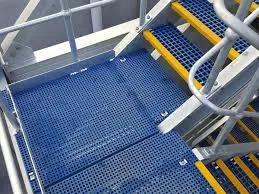
-
 Afrikaans
Afrikaans -
 Albanian
Albanian -
 Amharic
Amharic -
 Arabic
Arabic -
 Armenian
Armenian -
 Azerbaijani
Azerbaijani -
 Basque
Basque -
 Belarusian
Belarusian -
 Bengali
Bengali -
 Bosnian
Bosnian -
 Bulgarian
Bulgarian -
 Catalan
Catalan -
 Cebuano
Cebuano -
 China
China -
 China (Taiwan)
China (Taiwan) -
 Corsican
Corsican -
 Croatian
Croatian -
 Czech
Czech -
 Danish
Danish -
 Dutch
Dutch -
 English
English -
 Esperanto
Esperanto -
 Estonian
Estonian -
 Finnish
Finnish -
 French
French -
 Frisian
Frisian -
 Galician
Galician -
 Georgian
Georgian -
 German
German -
 Greek
Greek -
 Gujarati
Gujarati -
 Haitian Creole
Haitian Creole -
 hausa
hausa -
 hawaiian
hawaiian -
 Hebrew
Hebrew -
 Hindi
Hindi -
 Miao
Miao -
 Hungarian
Hungarian -
 Icelandic
Icelandic -
 igbo
igbo -
 Indonesian
Indonesian -
 irish
irish -
 Italian
Italian -
 Japanese
Japanese -
 Javanese
Javanese -
 Kannada
Kannada -
 kazakh
kazakh -
 Khmer
Khmer -
 Rwandese
Rwandese -
 Korean
Korean -
 Kurdish
Kurdish -
 Kyrgyz
Kyrgyz -
 Lao
Lao -
 Latin
Latin -
 Latvian
Latvian -
 Lithuanian
Lithuanian -
 Luxembourgish
Luxembourgish -
 Macedonian
Macedonian -
 Malgashi
Malgashi -
 Malay
Malay -
 Malayalam
Malayalam -
 Maltese
Maltese -
 Maori
Maori -
 Marathi
Marathi -
 Mongolian
Mongolian -
 Myanmar
Myanmar -
 Nepali
Nepali -
 Norwegian
Norwegian -
 Norwegian
Norwegian -
 Occitan
Occitan -
 Pashto
Pashto -
 Persian
Persian -
 Polish
Polish -
 Portuguese
Portuguese -
 Punjabi
Punjabi -
 Romanian
Romanian -
 Russian
Russian -
 Samoan
Samoan -
 Scottish Gaelic
Scottish Gaelic -
 Serbian
Serbian -
 Sesotho
Sesotho -
 Shona
Shona -
 Sindhi
Sindhi -
 Sinhala
Sinhala -
 Slovak
Slovak -
 Slovenian
Slovenian -
 Somali
Somali -
 Spanish
Spanish -
 Sundanese
Sundanese -
 Swahili
Swahili -
 Swedish
Swedish -
 Tagalog
Tagalog -
 Tajik
Tajik -
 Tamil
Tamil -
 Tatar
Tatar -
 Telugu
Telugu -
 Thai
Thai -
 Turkish
Turkish -
 Turkmen
Turkmen -
 Ukrainian
Ukrainian -
 Urdu
Urdu -
 Uighur
Uighur -
 Uzbek
Uzbek -
 Vietnamese
Vietnamese -
 Welsh
Welsh -
 Bantu
Bantu -
 Yiddish
Yiddish -
 Yoruba
Yoruba -
 Zulu
Zulu
fiberglass vessels and tanks
The Advantages of Fiberglass Vessels and Tanks
Fiberglass has become an increasingly popular material in the manufacturing of vessels and tanks due to its unique combination of properties that make it ideal for various applications. This composite material, made from fine glass fibers and resin, offers several advantages over traditional materials such as steel and aluminum, particularly in marine and industrial environments.
Durability and Corrosion Resistance
One of the primary benefits of fiberglass vessels and tanks is their exceptional durability. Unlike steel, which is susceptible to rust and corrosion, fiberglass is highly resistant to the effects of moisture, saltwater, and various chemicals. This resistance extends the lifespan of fiberglass products, making them a wise investment for industries that require reliable storage and transport solutions. For example, in the marine industry, fiberglass boats can withstand harsh oceanic conditions without deteriorating, while fiberglass tanks used for chemical storage can endure corrosive substances without leaking or failing.
Lightweight and Versatile
Fiberglass is significantly lighter than metals, which translates to easier handling and reduced transportation costs. This lightweight nature is particularly advantageous in the maritime sector, where weight savings can enhance fuel efficiency and performance. Moreover, the versatility of fiberglass allows for a wide range of designs and customizations, making it suitable for various applications—from recreational boats to large industrial storage tanks. Depending on the specific needs of a project, manufacturers can mold fiberglass into almost any shape, allowing for more innovative and functional designs.
fiberglass vessels and tanks

Low Maintenance Requirements
Fiberglass vessels and tanks require minimal maintenance compared to their metal counterparts. They do not need regular painting to prevent corrosion, and cleaning them is often hassle-free due to their smooth surface. This simplicity not only lowers maintenance costs but also saves time, enabling users to focus on their core activities rather than on upkeep. For many businesses, particularly those in remote locations or with limited access to maintenance resources, this reliability is invaluable.
Environmental Considerations
As concerns about environmental sustainability continue to grow, the use of fiberglass has also found favor due to its relatively low environmental impact during production and use. Manufacturers are increasingly utilizing recycled materials in the creation of fiberglass composites, leading to a more sustainable product lifecycle. Additionally, the longevity and durability of fiberglass contribute to less frequent replacements, further reducing waste over time.
Conclusion
In summary, fiberglass vessels and tanks present numerous advantages that make them an excellent choice for various applications. Their durability, lightweight properties, low maintenance requirements, and environmental benefits position them ahead of traditional materials. As industries continue to evolve and face new challenges, fiberglass technology will undoubtedly play a crucial role in meeting these demands. Whether for recreational boating or critical industrial processes, fiberglass is poised to remain a leading material for vessels and tanks, supporting innovation and efficiency across multiple sectors.









